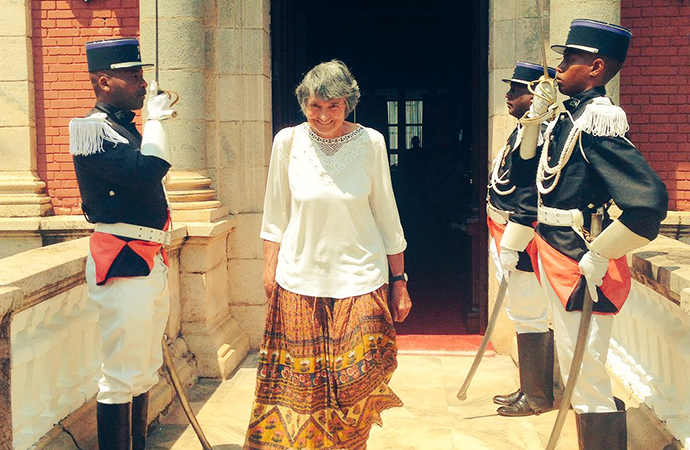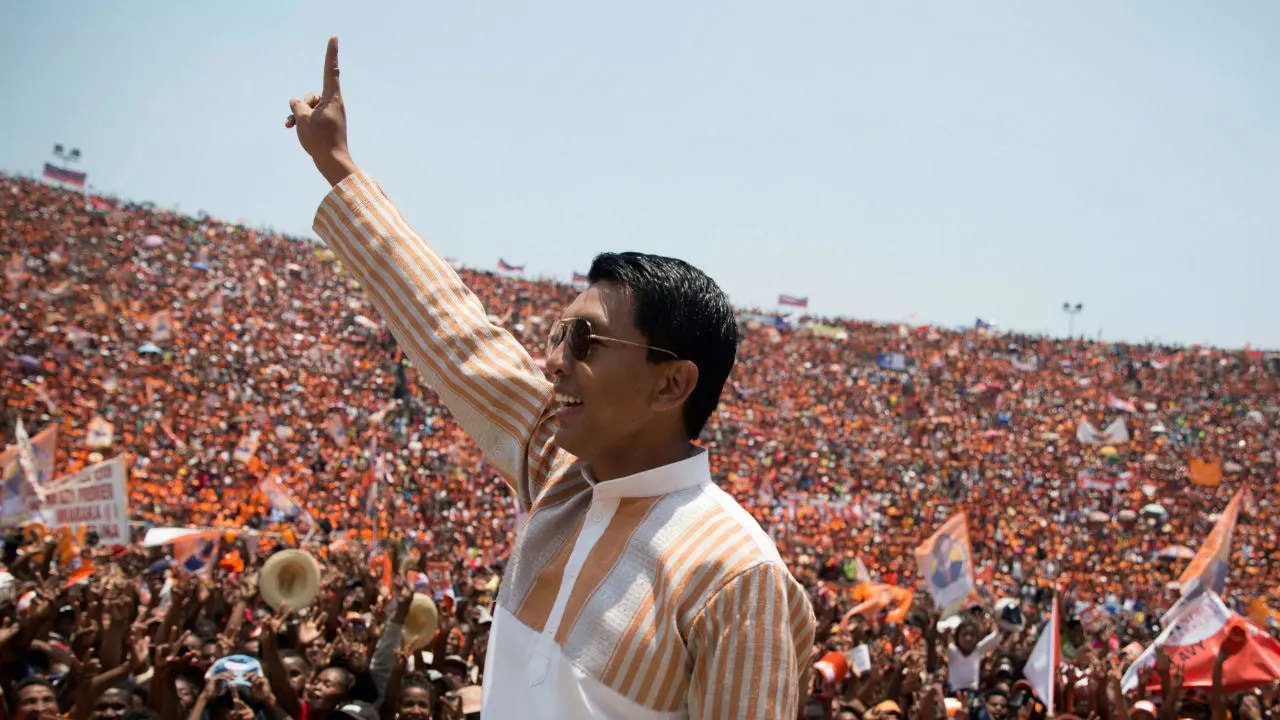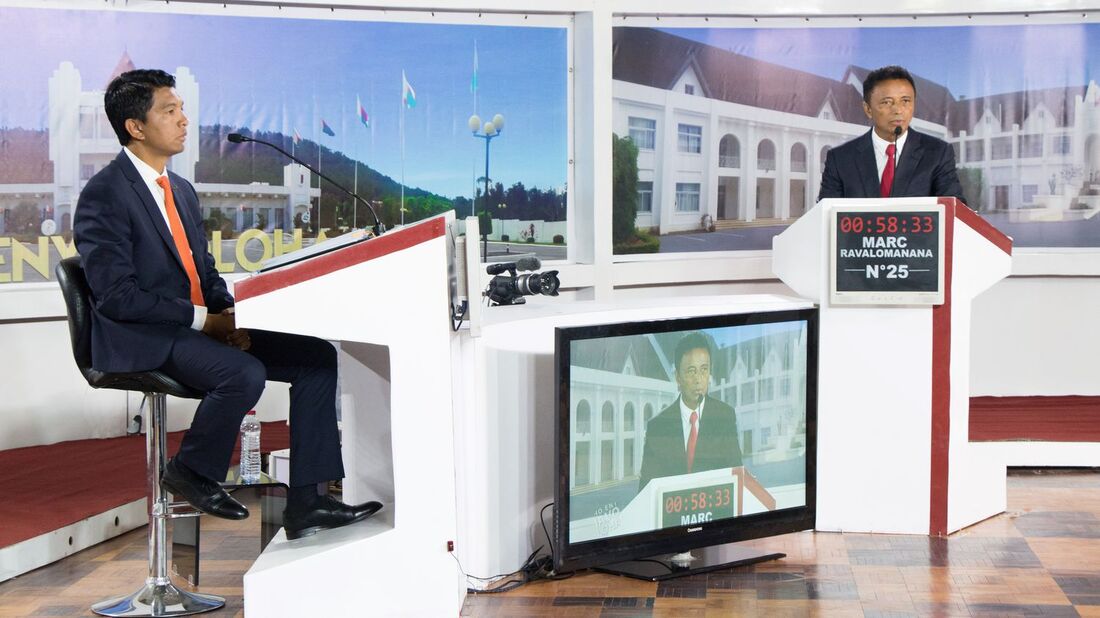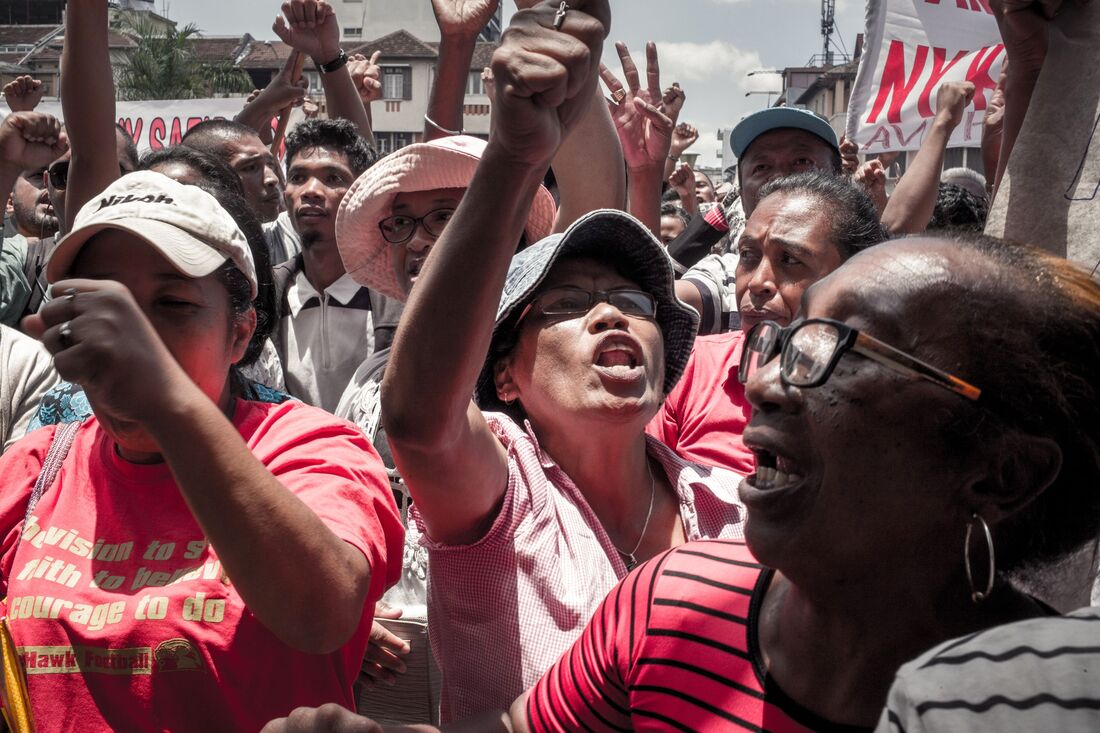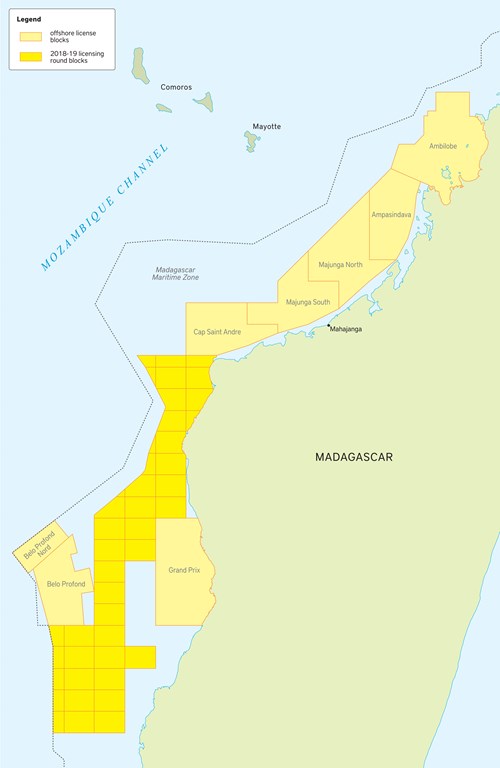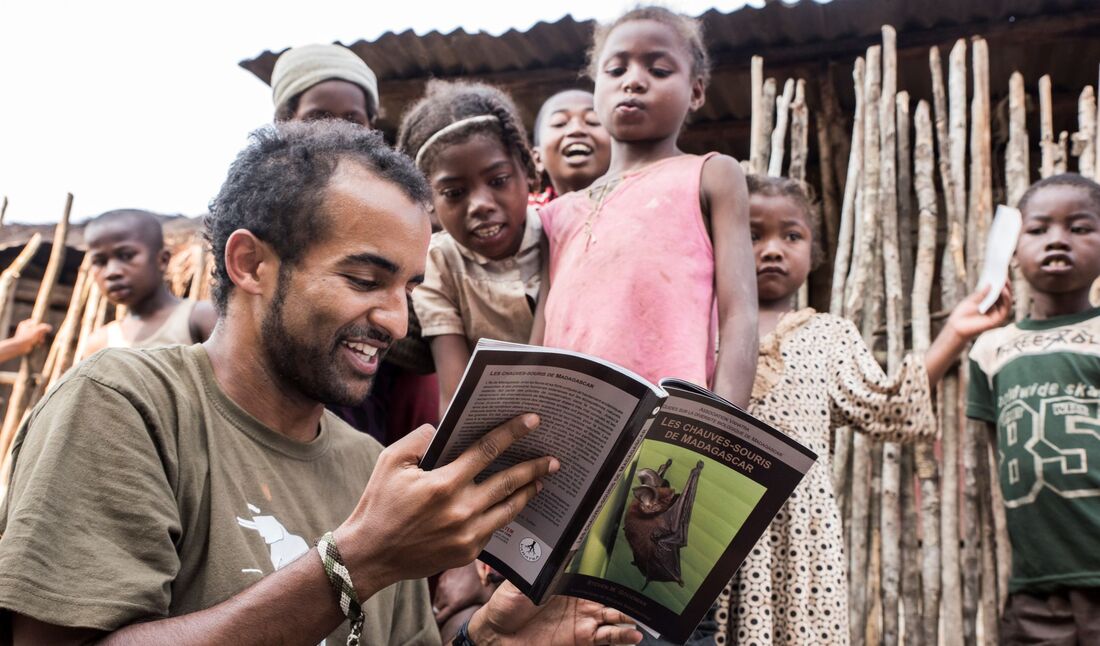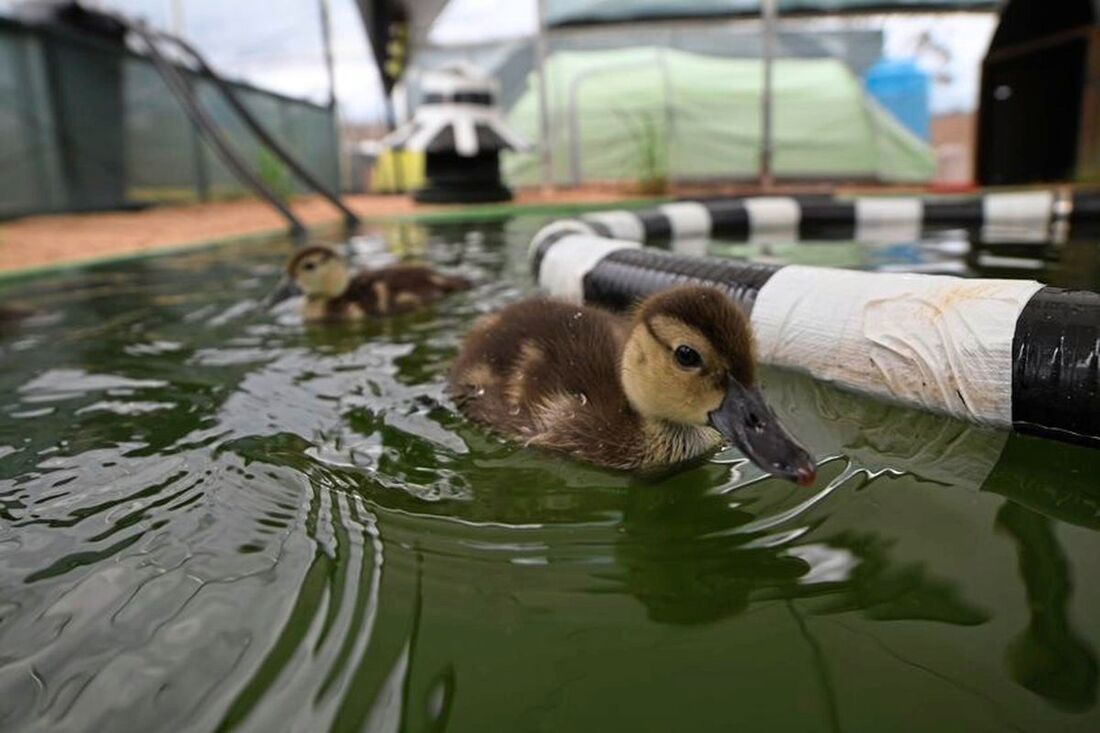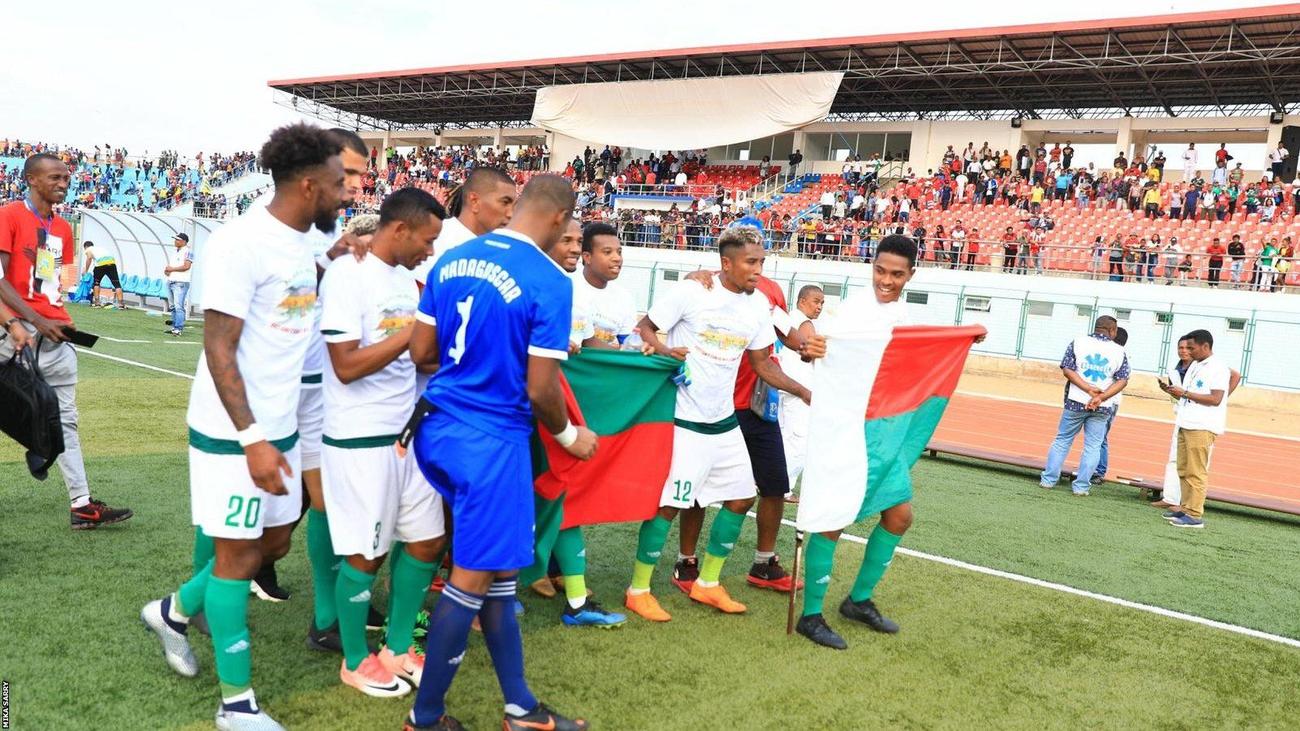Anglo-Malagasy Society Newsletter 102: December 2018 |
| ||
Society activities
The last Society meeting of 2018 was on Saturday 27th October. There were four interesting talks on a range of topics by Malagasy students in the UK: Mino Koloina Rakotolehibe on the use of apps and mobile technology in education in Madagascar; Tsiori Rakotondratsito on the pros and cons of tourists attending famadihana ceremonies; Daniella Rabino on the creation of more sustainable communities for rural youth in the country; and Mirado Rakotoharimalala on the role of football in developing a Malagasy community.
The newly-appointed Ambassador of Madagascar to the UK, Andry Bretino Raharinomena, attended and spoke on his new role. He was appointed on 1st October and moved to the UK full-time in November. He confirmed that the embassy would move to a new location and noted that his ambitions for the role included making more of the UK’s potential in bilateral as well as multinational aid, expanding the use of education and moving towards membership of the Commonwealth. Mr Raharinomena had himself been a Chevening scholar in 2014 and returned to the UK to do a PhD in 2012; he has worked extensively in the finance ministry.
The newly-appointed Ambassador of Madagascar to the UK, Andry Bretino Raharinomena, attended and spoke on his new role. He was appointed on 1st October and moved to the UK full-time in November. He confirmed that the embassy would move to a new location and noted that his ambitions for the role included making more of the UK’s potential in bilateral as well as multinational aid, expanding the use of education and moving towards membership of the Commonwealth. Mr Raharinomena had himself been a Chevening scholar in 2014 and returned to the UK to do a PhD in 2012; he has worked extensively in the finance ministry.
|
Hilary Bradt was made an Officer of the Ordre National de Madagascar, a richly-deserved honour to respect she work she has done over four decades in promoting the richly-rewarding attractions of Madagascar as a tourist destination, including the twelve editions of the Bradt guidebook. She was received by the interim president Rivo Rakotovao at the Ambohitsorohitra Palace during what will have been her last tour of the country in October. A formal presentation of the medal is expected at the new Malagasy embassy in 2019.
|
The date for the next Society meeting is Wednesday 13th March 2019 in the evening with subsequent events on 26th June and then during the day on 19th October. Details of the events will be on Facebook and our website at www.anglo-malagasysociety.co.uk, which also has a summary of some of the previous talks for those unable to attend, together with much other useful information. This includes directions to the venue for our meetings, which is the Upper Vestry Hall of St George’s Church, Bloomsbury, London WC1A 2HR, which is two minutes’ walk from the British Museum.
The next newsletter will be published in March 2019. Please send any material for inclusion as well as any changes in your contact details to the editor Julian Cooke, whose e-mail address is [email protected].
The next newsletter will be published in March 2019. Please send any material for inclusion as well as any changes in your contact details to the editor Julian Cooke, whose e-mail address is [email protected].
Politics in Madagascar
Madagascar has held its presidential election which was won by Andry Rajoelina who defeated Marc Ravalomanana in the run-off in December; the incumbent Hery Rajaonarimampianina came a distant third in the first round in November.
At the beginning of October a European Union mission to observe the elections started, with forty of its hundred-strong team there for the longer-term and with a stated intention to provide a report two days after the vote. There were thirty-six candidates, only six of whom signed a charter for good conduct at a ceremony on 3rd October although others maintained that the stipulations should be enshrined in law to be more effective; a further six signed later including Rajaonarimampianina. The next day twenty-two of the candidates called on the electoral commission CENI to make changes to the electoral list, both to exclude minors, duplicates and the like and to include those who did not hold identity cards; CENI rejected any changes on technical, legal and financial grounds.
On 5th October, several days before the start of the official campaign, the prime minister Christian Ntsay intervened to have the Malagasy aviation authority allow an initial introduction into the country of a number of helicopters for candidates other than Rajaonarimampianina (five for Rajoelina, two for Ravalomanana and one for Olivier Mahafaly, while the permission to fly came the next week).
In early October Russia and Madagascar signed an intergovernmental agreement on military cooperation, during a visit by the Deputy Chief of the General Staff of the Russian Armed Forces, Lieutenant-General Yevgeny Burdinsky, who was received by the prime minister.
As often the campaign was based on personality and an appeal to better times rather than specific policies. However, Rajaonarimampianina played on the economic improvement in the country in recent years; Jean Ravelonarivo, one of the former prime ministers standing (and a former general), said he would be able to deal with the insecurity in the country within a year; and another former president Didier Ratsiraka proposed re-establishing the autonomous regions set up in 1998. Dama, or Zafimahaleo Rasolofondraosolo, the musician with Mahaleo, stood as an anti-system candidate.
On 11th October Transparency International noted that he first five days of campaigning bore the hall-mark of previous elections in which money dominated. It asked all candidates ten questions online on their source of funding and their budget for the campaign (none had answered as of a fortnight later). The executive director, Ketakandriana Rafitoson, suggested that all candidates were looking for a return on their investment and that the three previous presidents had all been implicated in rosewood trafficking.
The early stages of the campaign saw some outbreaks of violence and illegal posters for candidates as well as events such as the arrest of Rainidiana Liampivoarana, the spokesman for Fanjankana Gasy, an association promoting a restructuring of the state; an associate Pety Rakotoniaina, the head of Hetsika ho an’ny Fanorenana Ifotony ho an’i Madagasikara (HFI) and former mayor of Fianarantsoa, was also arrested and charged with threatening the security of the state.
On 19th October the HCC dismissed the claim from twenty-one candidates for a revision to the electoral list. The electoral council CENI arranged a meeting with thirty candidates which was broadcast on national TV and radio, although the broadcast was interrupted, while Rajoelina and Ravalomanana were notably absent. The meeting at Nanisana turned into a criticism of the electoral process and twenty-five of the candidates signed a demand for the vote to be postponed. The head of the EU’s observation team, Cristian Preda, expressed concern at the behaviour of the candidates and the lack of proper campaigning.
On 21st October Ravalomanana was one of the candidates who attended a gathering at the Mahamasina stadium of the FJKM, bringing to a close the celebration of its fiftieth anniversary and the bicentenary of the arrival of the London Missionary Society. In an address the president of the FJKM, Pastor Irako Andriamahazosoa Ammi, told candidates to be Christians ready to help the population rather than to scorn it or to dupe it with money. The three leading candidates were reported to be spending the equivalent of tens of millions of dollars on their campaigns, similar to the $43m President Hery Rajaonarimampianina was said to have spent in 2013 (criticised as being twice as much per vote won than in Donald Trump’s campaign in the US).
The dispute over the electoral list continued. On 25th October nineteen of the twenty-five candidates who had signed the Nanisana demand gave the government, CENI and the Haute Cour Constitutionelle (HCC) 72 hours to re-open the list; the HCC rejected the request and noted that it was not obliged to include anyone who had not registered. The interim president, Rivo Rakotovao, received a delegation from the candidates. At the end of October a fresh delegation from the SADC arrived to monitor the polls while the ultimatum on the electoral list expired; various of the twenty-five candidates spoke at a rally at Mahamasina and criticised the heavy presence of forces of order. Hery Rakotomanana, the head of CENI, gave a robust rebuttal to criticisms of the electoral list noting that it had started to be compiled over two years previously and that the details had been checked with each fokontany while an audit by the Organisation Internationale de la Francophonie (OIF) had approved it when noting a level of just 0.15% in imperfections.
At the beginning of October a European Union mission to observe the elections started, with forty of its hundred-strong team there for the longer-term and with a stated intention to provide a report two days after the vote. There were thirty-six candidates, only six of whom signed a charter for good conduct at a ceremony on 3rd October although others maintained that the stipulations should be enshrined in law to be more effective; a further six signed later including Rajaonarimampianina. The next day twenty-two of the candidates called on the electoral commission CENI to make changes to the electoral list, both to exclude minors, duplicates and the like and to include those who did not hold identity cards; CENI rejected any changes on technical, legal and financial grounds.
On 5th October, several days before the start of the official campaign, the prime minister Christian Ntsay intervened to have the Malagasy aviation authority allow an initial introduction into the country of a number of helicopters for candidates other than Rajaonarimampianina (five for Rajoelina, two for Ravalomanana and one for Olivier Mahafaly, while the permission to fly came the next week).
In early October Russia and Madagascar signed an intergovernmental agreement on military cooperation, during a visit by the Deputy Chief of the General Staff of the Russian Armed Forces, Lieutenant-General Yevgeny Burdinsky, who was received by the prime minister.
As often the campaign was based on personality and an appeal to better times rather than specific policies. However, Rajaonarimampianina played on the economic improvement in the country in recent years; Jean Ravelonarivo, one of the former prime ministers standing (and a former general), said he would be able to deal with the insecurity in the country within a year; and another former president Didier Ratsiraka proposed re-establishing the autonomous regions set up in 1998. Dama, or Zafimahaleo Rasolofondraosolo, the musician with Mahaleo, stood as an anti-system candidate.
On 11th October Transparency International noted that he first five days of campaigning bore the hall-mark of previous elections in which money dominated. It asked all candidates ten questions online on their source of funding and their budget for the campaign (none had answered as of a fortnight later). The executive director, Ketakandriana Rafitoson, suggested that all candidates were looking for a return on their investment and that the three previous presidents had all been implicated in rosewood trafficking.
The early stages of the campaign saw some outbreaks of violence and illegal posters for candidates as well as events such as the arrest of Rainidiana Liampivoarana, the spokesman for Fanjankana Gasy, an association promoting a restructuring of the state; an associate Pety Rakotoniaina, the head of Hetsika ho an’ny Fanorenana Ifotony ho an’i Madagasikara (HFI) and former mayor of Fianarantsoa, was also arrested and charged with threatening the security of the state.
On 19th October the HCC dismissed the claim from twenty-one candidates for a revision to the electoral list. The electoral council CENI arranged a meeting with thirty candidates which was broadcast on national TV and radio, although the broadcast was interrupted, while Rajoelina and Ravalomanana were notably absent. The meeting at Nanisana turned into a criticism of the electoral process and twenty-five of the candidates signed a demand for the vote to be postponed. The head of the EU’s observation team, Cristian Preda, expressed concern at the behaviour of the candidates and the lack of proper campaigning.
On 21st October Ravalomanana was one of the candidates who attended a gathering at the Mahamasina stadium of the FJKM, bringing to a close the celebration of its fiftieth anniversary and the bicentenary of the arrival of the London Missionary Society. In an address the president of the FJKM, Pastor Irako Andriamahazosoa Ammi, told candidates to be Christians ready to help the population rather than to scorn it or to dupe it with money. The three leading candidates were reported to be spending the equivalent of tens of millions of dollars on their campaigns, similar to the $43m President Hery Rajaonarimampianina was said to have spent in 2013 (criticised as being twice as much per vote won than in Donald Trump’s campaign in the US).
The dispute over the electoral list continued. On 25th October nineteen of the twenty-five candidates who had signed the Nanisana demand gave the government, CENI and the Haute Cour Constitutionelle (HCC) 72 hours to re-open the list; the HCC rejected the request and noted that it was not obliged to include anyone who had not registered. The interim president, Rivo Rakotovao, received a delegation from the candidates. At the end of October a fresh delegation from the SADC arrived to monitor the polls while the ultimatum on the electoral list expired; various of the twenty-five candidates spoke at a rally at Mahamasina and criticised the heavy presence of forces of order. Hery Rakotomanana, the head of CENI, gave a robust rebuttal to criticisms of the electoral list noting that it had started to be compiled over two years previously and that the details had been checked with each fokontany while an audit by the Organisation Internationale de la Francophonie (OIF) had approved it when noting a level of just 0.15% in imperfections.
|
At the start of November there were continued reports of violence linked to the campaign. Sarah Rabeharisoa, the leader of the Parti Libéral Démocrate, ended her candidacy and pledged her support to Rajoelina, although the HCC said that no withdrawal was allowed at this stage so her name would remain on the ballot. On campaign finances Transparency International received responses from six candidates with a combined budget of a little under €1m of which over half was for the singer Dama; it estimated that the budgets were €1-2m for the three leading candidates, which seemed low. Rajoelina garnered support from grand events with fireworks and pop singers, as well as a range of lavish promises.
|
There were exit polls taken, if not approved by the electoral commission, which indicated that Rajoelina and Ravalomanana had dominated the first round; each claimed victory and was criticised by the OIF for doing so. Rajaonarimampianina spoke of a range of irregularities although the EU envoy said that any such problems had been marginal with no impact on the result. Ravalomanana criticised CENI for the delay in publishing results; the electoral commission said that there were technical issues and also had to defend itself against charges of corruption. The EU’s initial report mentioned incidents of money being handed out, especially in the case of Rajaonarimampianina and of Rajoelina, whose supporters called on the EU ambassador to publish a retraction. The presidential party HVM cited further irregularities while the HFI movement called for the result to be annulled. Five days after the vote CENI had only confirmed the results from 53% of the 24,852 polling stations and again had to defend itself from criticism, such as from Rajoelina’s camp on an apparent lack of transparency.
When CENI published its provisional results on 18th November Rajoelina had won the first round with 39.2% of the vote and Ravalomanana was second with 35.3%; Rajolina had done relatively well in coastal districts and Ravalomanana in the central highlands. The incumbent Rajaonarimampianina finished a distant third with 8.8%. Apart from Pastor André Mailhol who took 1.3% and two other candidates in Joseph Randriamampionona and Ny Rado Rafalimanana with 1.2%, none had passed the 1% threshold and Didier Ratsiraka had only 0.45% of the votes (Rabeharisoa fared better with 0.48% in spite of her withdrawal). All but the two winners lost their deposit of 50m ariary. A significant 7% of the votes were blank or null, up from 3% in 2013. The participation rate at 54.2% was down on the 61% turnout in the 2013 elections.
Rajaonarimampianina’s team laid a formal complaint of fraud at the HCC, which would have nine days to publish the definitive result. Rajoelina complained of an attempt to prevent him winning outright with 50% of the vote and CENI again denied any shortcomings in its computer software (which a subsequent audit by the accountants Moore Stephens supported). Ravalomanana abruptly withdrew his own complaints which still left the HCC with 212 to consider.
The international community, including the SADC, called for calm, as did the country’s twenty-four bishops on 23rd November, while also criticising the egotism and divisive approach of the politicians. On 27th November the HCC announced the official results which gave Rajoelina 39.2% and Ravalomanana 35.4% and confirmed also the 8.8% for Rajaonarimampianina. The HCC recorded a slightly lower participation rate of 54% with 5,367,550 voting out of the 9,949,083 on the register.
The campaign for the second round would run from 3rd December for a fortnight. The outgoing president Rajaonarimampianina said he would support neither of the two candidates, although he had been expected to back Ravalomanana as many in his party HVM said they would. In a farewell broadcast Rajaonarimampianina maintained that he had launched many projects to save Madagascar, some of which had worked and some were still work-in-progress while others had fallen short; he admitted to errors saying no-one was perfect and apologised for any perceived injury. Mailhol also declined to back either of the two candidates; initially Ravalomanana only had the support of Fanirisoa Ernaivo, who had been suspended from her position in the magistrates’ union SMM over intemperate remarks on the hustings, while Rajoelina only had the backing of Roland Ratsiraka, who had announced he would step out of politics but then seemed to change his mind.
When CENI published its provisional results on 18th November Rajoelina had won the first round with 39.2% of the vote and Ravalomanana was second with 35.3%; Rajolina had done relatively well in coastal districts and Ravalomanana in the central highlands. The incumbent Rajaonarimampianina finished a distant third with 8.8%. Apart from Pastor André Mailhol who took 1.3% and two other candidates in Joseph Randriamampionona and Ny Rado Rafalimanana with 1.2%, none had passed the 1% threshold and Didier Ratsiraka had only 0.45% of the votes (Rabeharisoa fared better with 0.48% in spite of her withdrawal). All but the two winners lost their deposit of 50m ariary. A significant 7% of the votes were blank or null, up from 3% in 2013. The participation rate at 54.2% was down on the 61% turnout in the 2013 elections.
Rajaonarimampianina’s team laid a formal complaint of fraud at the HCC, which would have nine days to publish the definitive result. Rajoelina complained of an attempt to prevent him winning outright with 50% of the vote and CENI again denied any shortcomings in its computer software (which a subsequent audit by the accountants Moore Stephens supported). Ravalomanana abruptly withdrew his own complaints which still left the HCC with 212 to consider.
The international community, including the SADC, called for calm, as did the country’s twenty-four bishops on 23rd November, while also criticising the egotism and divisive approach of the politicians. On 27th November the HCC announced the official results which gave Rajoelina 39.2% and Ravalomanana 35.4% and confirmed also the 8.8% for Rajaonarimampianina. The HCC recorded a slightly lower participation rate of 54% with 5,367,550 voting out of the 9,949,083 on the register.
The campaign for the second round would run from 3rd December for a fortnight. The outgoing president Rajaonarimampianina said he would support neither of the two candidates, although he had been expected to back Ravalomanana as many in his party HVM said they would. In a farewell broadcast Rajaonarimampianina maintained that he had launched many projects to save Madagascar, some of which had worked and some were still work-in-progress while others had fallen short; he admitted to errors saying no-one was perfect and apologised for any perceived injury. Mailhol also declined to back either of the two candidates; initially Ravalomanana only had the support of Fanirisoa Ernaivo, who had been suspended from her position in the magistrates’ union SMM over intemperate remarks on the hustings, while Rajoelina only had the backing of Roland Ratsiraka, who had announced he would step out of politics but then seemed to change his mind.
|
Each of Rajoelina and Ravalomanana claimed widespread support and sought more. CENI said it would arrange six television debates and encouraged voters to back the candidate they saw as more capable, rather than sell their vote for a cap or T-shirt. The two candidates launched their campaigns with a church service. Ravalomanana said he was the one to unite and develop the country, and Rajoelina promised to help the poor, but each also criticised the other for the state the country was in notably in a first television debate on 9th December.
|
The EU provided a further €348,000 in funds to help with the elections and its ambassador stressed the Union’s neutrality. The confederation of churches, the FFKM, also denied it was supporting either candidate and called on both of them to be faithful and true.
A series of rumours did not help an atmosphere that raised concerns of a further crisis after the vote. Ravalomanana claimed there were fraudulent voting cards in circulation and lodged a formal complaint with CENI, which reiterated its ban on exit polls.
The vote took place on 19th December and both candidates said that they were confident of winning. The initial results (after just 2% of the votes were counted) indicated a clear margin for Rajoelina and an even lower turn-out at 47%. Again the EU observers said that while there had been some small irregularities there was nothing to compromise the vote; the US embassy, which had deployed forty observers in ten cities, indicated that the vote had been regular and peaceful although a Malagasy body Safidy noted a range of irregularities and incidences of the distribution of money particularly by Rajoelina. Ravalomanana increasingly criticised the results as they came in, showing Rajoelina as maintaining his lead, as neither credible nor transparent, while the EU repeated its findings that the election had been broadly fair.
A series of rumours did not help an atmosphere that raised concerns of a further crisis after the vote. Ravalomanana claimed there were fraudulent voting cards in circulation and lodged a formal complaint with CENI, which reiterated its ban on exit polls.
The vote took place on 19th December and both candidates said that they were confident of winning. The initial results (after just 2% of the votes were counted) indicated a clear margin for Rajoelina and an even lower turn-out at 47%. Again the EU observers said that while there had been some small irregularities there was nothing to compromise the vote; the US embassy, which had deployed forty observers in ten cities, indicated that the vote had been regular and peaceful although a Malagasy body Safidy noted a range of irregularities and incidences of the distribution of money particularly by Rajoelina. Ravalomanana increasingly criticised the results as they came in, showing Rajoelina as maintaining his lead, as neither credible nor transparent, while the EU repeated its findings that the election had been broadly fair.
|
On 26th December CENI announced the provisional results which showed Rajoelina as the victor with 55.7% of the vote against 44.3% for Ravalomanana with a turnout of 48%. While its head called on the two candidates to find a consensus Ravalomanana’s supporters planned a rally to contest the outcome, and several thousand staged a peaceful protest. The French news agency RFI attributed Rajoelina’s success to his lavish promises, his appeal to the côtiers and the poor, his active campaigning by helicopter and his relative youth at 44 years of age against 69 for Ravalomanana.
|
Economic and social matters
Finance and aid
An apparent slow-down in economic growth ahead of the elections was one factor blamed for a decline in the ariary as were funds brought in to finance election campaigns, although the central bank attributed the weakness in the currency with some justification more to an element of seasonality, the strength of the US$ and higher global oil prices.
An agreement for funding by Belgium of new hybrid solar power stations was ratified; the Belgian loan would cover €8m of the €10m cost. In December Kuwait agreed to fund $10m of the €60m cost of a new bridge over the River Mangoky, which would be the longest in the country. The Arab Development Bank committed with partners some $157m to improve main roads in the south of the country.
An agreement for funding by Belgium of new hybrid solar power stations was ratified; the Belgian loan would cover €8m of the €10m cost. In December Kuwait agreed to fund $10m of the €60m cost of a new bridge over the River Mangoky, which would be the longest in the country. The Arab Development Bank committed with partners some $157m to improve main roads in the south of the country.
Health
As of end October a new incident of plague had led to ten deaths out of 378 cases since the beginning of August and by late December the fatalities had risen to nineteen. The country also suffered an outbreak of measles with some 10,200 cases in 44 districts of whom 1,000 were hospitalised.
Antananarivo remains one of the most polluted cities in the world, with particulates at 60 μg per cubic metre, three times the level deemed safe by the WHO, while intra-day levels could be six times greater and worse than in New Delhi. A report in October estimated that pollution in homes had accounted for a tenth of deaths in 2016 while poor air quality outside the home a further 4% and poor water 8%.
Antananarivo remains one of the most polluted cities in the world, with particulates at 60 μg per cubic metre, three times the level deemed safe by the WHO, while intra-day levels could be six times greater and worse than in New Delhi. A report in October estimated that pollution in homes had accounted for a tenth of deaths in 2016 while poor air quality outside the home a further 4% and poor water 8%.
Indices
In the 2018 Index on Human Development Madagascar saw a slight improvement in its score from 0.512 to 0.519 although its ranking slipped two places to 161st. There were positive moves in access to the internet if concerns over under-employment and security, while life expectancy at birth was put at 66.3 years.
A Global Hunger Index ranked Madagascar at 116th of 119 countries surveyed with a level of malnutrition of 43% of the population, up from 32% in 2010.
In November Madagascar was classified in 161st place of 190 countries in the World Bank’s survey Doing Business 2019 with a slight improvement in its score helped by better access to credit details.
A Global Hunger Index ranked Madagascar at 116th of 119 countries surveyed with a level of malnutrition of 43% of the population, up from 32% in 2010.
In November Madagascar was classified in 161st place of 190 countries in the World Bank’s survey Doing Business 2019 with a slight improvement in its score helped by better access to credit details.
Agriculture
The vanilla harvest which runs from July to September was expected to see export prices in a range of $380-560 per kg which compares to a peak of $635 in 2017.
Imports of rice into Madagascar were higher in the first ten months of 2018 at 473,150 tonnes than the 406,450 tonnes in the corresponding period in 2017, in spite of moves to increase self-sufficiency in production on the island.
Imports of rice into Madagascar were higher in the first ten months of 2018 at 473,150 tonnes than the 406,450 tonnes in the corresponding period in 2017, in spite of moves to increase self-sufficiency in production on the island.
Insecurity
There were repeated incidents of attacks by bandits and summary justice, including the killing of three undercover policemen in a village in Fénerive-Est. In October the Gendarmerie said it had arrested 700 people under its Mandio campaign of whom 300 were in jail. The Ministry of Defence held a ceremony, the first of its kind and attended by the prime minister, in which 843 weapons were destroyed, from those either seized or handed in under an amnesty. There were also renewed incidences of kidnappings: in 2018 there were twenty-two victims released after the payment of a ransom, three times the number in 2017.
Prisons
There were reports in October of continued poor conditions in prisons, with crowded cells and inadequate food. Amnesty International criticised the number of detentions without trial, said to be up to 11,000 (and 52 detainees had died in prison in 2017). The Ministry of Justice said it had an increased budget for 2019 and would be building new prisons as well as introducing a new prison diet after tests in two centres.
Tourism
In the first nine months of 2018 the number of foreign visitors to Madagascar fell from 197,000 to 183,000 with increased insecurity and the outbreak of plague blamed for the drop. In November the Minister of Tourism, Brunel Razafitsiandraofa, said that with the co-operation of the authorities in China Madagascar might receive 250,000 Chinese tourists in 2019.
In November Air Austral and Air Madagascar launched a new code-shared flight connection between Reunion and Taolognaro/Fort Dauphin to start on 3rd December; the twice-weekly flights will be operated by a B737-800 and will return from Fort Dauphin to Reunion via Toliara. In December the CEO of Air Madagascar, Rolland Razafimaharo, signed a ‘Privileged Partnership Agreement’ with Air Austral and Kenya Airlines, with which it will offer a code-share service on the Nairobi route as of January.
In October The Spectator magazine published an article by John Gimlette, a Society member, on his travels in Isalo and to Ilakaka.
In November Air Austral and Air Madagascar launched a new code-shared flight connection between Reunion and Taolognaro/Fort Dauphin to start on 3rd December; the twice-weekly flights will be operated by a B737-800 and will return from Fort Dauphin to Reunion via Toliara. In December the CEO of Air Madagascar, Rolland Razafimaharo, signed a ‘Privileged Partnership Agreement’ with Air Austral and Kenya Airlines, with which it will offer a code-share service on the Nairobi route as of January.
In October The Spectator magazine published an article by John Gimlette, a Society member, on his travels in Isalo and to Ilakaka.
Minerals
At the beginning of November Sumitomo Corp, which has a 47.7% stake in the Ambatovy nickel and cobalt mine, said that it expected nickel output to be 40,000 tonnes in the year to March 2019 which was lower than previously forecast due to poor weather and a slow ramp-up in production after routine maintenance. The company said it expected a loss of 13.6bn Yen or some £100m.
In October the state chromite company Kraomita Malagasy was became part of a joint venture with Russian operators after Ferrum Mining took an 80% stake in a new holding company Kraoma Mining. Employees at the company went on strike in protest, demanding more details.
In October the state chromite company Kraomita Malagasy was became part of a joint venture with Russian operators after Ferrum Mining took an 80% stake in a new holding company Kraoma Mining. Employees at the company went on strike in protest, demanding more details.
|
In November the state mineral agency OMNIS announced its new licencing round during Africa Oil Week in Cape Town, the first since 2006. The offering comprised forty-four offshore blocks in the Morondava Basin off Madagascar’s western coast, covering 63,296km² in acreage. The move came in spite of the presidential elections, the first round of which took place the day after the announcement. Petroleum Economist reported that the licensing round runs for six months to May 2019, followed by a three-month evaluation period; the terms provide for an exploration period of eight years, with a possible two-year extension. Any exploitation period would be 25 years for oil and 35 years for gas, with an optional five-year extension.
In late December Diamond Fields Resources announced a maiden inferred mineral resource of 1.5m tonnes with a 22.7% zircon grading level for its Beravina project in Madagascar. The Singapore-listed company SR Capital came close to concluding its S$3 million acquisition of a rare-earth mining asset in Madagascar at end December. There had been questions over the purchase of a 60% stake in Tantalum Holding (Mauritius) which owns Tantalum Rare Earth Malagasy; the latter holds an exploration licence for a rare-earth mining concession in Madagascar. The purchase has been in progress since mid-2016. |
Wildlife and conservation
Forests and protected areas
The NGOs Alliance Voahary Gasy (AVG) and Transparency International criticised plans to indemnify those involved in the illegal trafficking of rosewood which would be submitted to a CITES conference on 2nd October. The conference rejected the business plan proposed by the Malagasy ministries of the environment and justice and suggested they find an alternative solution to paying for the wood while complimenting them on some aspects. In November the German ambassador, noting that his country was the largest donor to Madagascar on the environment, called for an end to trafficking after an apparent resurgence in the east of the country. AVG also noted an increase in trafficking during the election campaign. In late December a ship Flying, which was suspected of playing a significant role in such trafficking since 2015, was seized by the navy off Antalaha; it carried a Panamanian flag and Chinese crew.
A survey by NASA indicated that in 2017 fires had destroyed 510,000 hectares of forest in Madagascar, equivalent to 3.8% of the remaining coverage and a rate higher than in Brazil and Indonesia.
An article on Reuters in October described the challenges for tour guides in Madagascar given the pressure that was being placed on the country’s forests and its wildlife.
A survey by NASA indicated that in 2017 fires had destroyed 510,000 hectares of forest in Madagascar, equivalent to 3.8% of the remaining coverage and a rate higher than in Brazil and Indonesia.
An article on Reuters in October described the challenges for tour guides in Madagascar given the pressure that was being placed on the country’s forests and its wildlife.
|
A study by Ricardo Rocha of Cambridge University and James Kemp of the University of Lisbon indicated that six species of bats in Madagascar could act as potential suppressors of multiple agricultural pests such as the paddy swarming caterpillar and grass webworm, while improved production of rice and other grains might take some of the strain off the country’s forests.
|
Species
Research published in October indicated that certain fruits growing in areas with large lemur populations had evolved to smell stronger when ripe to fit in with the animals’ stronger sense of smell. The researchers, from the University of Ulm in Germany, the University of Connecticut and the University of Antananarivo, looked at thirty plant species in Ranomafana National Park in Madagascar.
In an encouraging move for those fighting trafficking in tortoises in two separate cases in October Malagasy courts imposed jail sentences of six years as well as fines of 100–150m ariary.
There were increasing concerns over the last quarter of the year on an agreement signed in Beijing in September by which a Chinese firm would deliver 330 14-metre fishing boats to replace traditional pirogues; the expected catch of 130,000 tonnes would supply local needs with the surplus going to China. Given that the total catch in Madagascar in 2017 was 163, 492 tonnes such a deal would place considerable pressure on resources. There is a feature in the Deccan Chronicle on the impact of Chinese fishing vessels on the traditional livelihood of the Vezo.
In an encouraging move for those fighting trafficking in tortoises in two separate cases in October Malagasy courts imposed jail sentences of six years as well as fines of 100–150m ariary.
There were increasing concerns over the last quarter of the year on an agreement signed in Beijing in September by which a Chinese firm would deliver 330 14-metre fishing boats to replace traditional pirogues; the expected catch of 130,000 tonnes would supply local needs with the surplus going to China. Given that the total catch in Madagascar in 2017 was 163, 492 tonnes such a deal would place considerable pressure on resources. There is a feature in the Deccan Chronicle on the impact of Chinese fishing vessels on the traditional livelihood of the Vezo.
|
The Durrell Wildlife Conservation Trust has continued its work to restore the population of what was the world’s rarest bird, the Madagascar pochard, in association with the Wild Fowl and Wetlands Trust, the Peregrine Fund, the government of Madagascar and communities around Lake Sofia. In December ducklings hatched in October were transported 200 km to the lake along a dirt road and reared in lakeside aviaries; then in early December, just before they were able to fly, they were moved into floating aviaries made from converted salmon pens.
An item in Clean Seas in November reported on the progress of the UN-supported Dugong and Seagrass Conservation Project in Madagascar. |
Charities and NGOs
TASC
The charity TASC (Tossing a Starfish) have been working with their partner organisation The Adsum Foundation on a third new primary school in Madagascar, at a small village called Andasy near Vohipeno. When the school is finished TASC, through negotiations with the education authority, have ensured that all the teachers will receive training and have their wages paid regularly, which it is hoped will improve the children’s exam results, currently at a pass rate of 30%.
FAMadagascar
A charity FAMadagascar is involved in helping poor families in danger of giving away their children if they cannot cope and to helping to find foster families. The charity is run by John and Catherine Butlin, who attended the Society meeting in June 2017 with Lanto, the Malagasy social worker engaged in the organisation. There are more details on their website.
Events and books
Wildlife
Sir David Attenborough’s memoirs To The Other Side Of The World: Further Adventures of A Young Naturalist which were published in September include his visit to Madagascar; there were details on Mail Online.
The Royal Botanic Gardens Kew last year published a new book (ISBN 978-1-84246-638-3) with pictures of all of Madagascar’s grass genera, written by Maria Vorontsova and others hoping to encourage interest in these plants. There are more details including the option to buy on the Kew online shop.
The Royal Botanic Gardens Kew last year published a new book (ISBN 978-1-84246-638-3) with pictures of all of Madagascar’s grass genera, written by Maria Vorontsova and others hoping to encourage interest in these plants. There are more details including the option to buy on the Kew online shop.
Sport
|
The Malagasy football team enjoyed a striking campaign that ensured qualification for the 2019 Africa Cup of Nations and came as a sharp contrast to their struggles in four previous competitions; they are ranked 106th in the world. The Barea were awarded national honours and a cheque for 100m ariary. The BBC Sport website had a feature.
The Oxford University rugby union team made a pre-season tour to Madagascar in late September; the Malagasy national side, which is ranked 50th in the world, won 39-35 in the opening game but the Dark Blues won the second match 28-22 to level the series. |
The New York Times carried a detailed article in November about the traditional Malagasy martial arts sport of moraingy in the Sava region, where higher vanilla prices have had an impact.
Mountains
Three British climbers made the first ascent of Blood Moon on Tsaranoro Atsimo. Alan Carne, Calum Cunningham and Robbie Phillips completed the ascent at the second attempt in September although Carne broke his leg in a fall during an attempted free ascent, which needed evacuation.
Concert
Money for Madagascar held its concert to mark the bicentenary of the arrival in Madagascar of Welsh missionaries on 22nd September in Cardiff, when Justin Vali joined the Nidum Ensemble.
